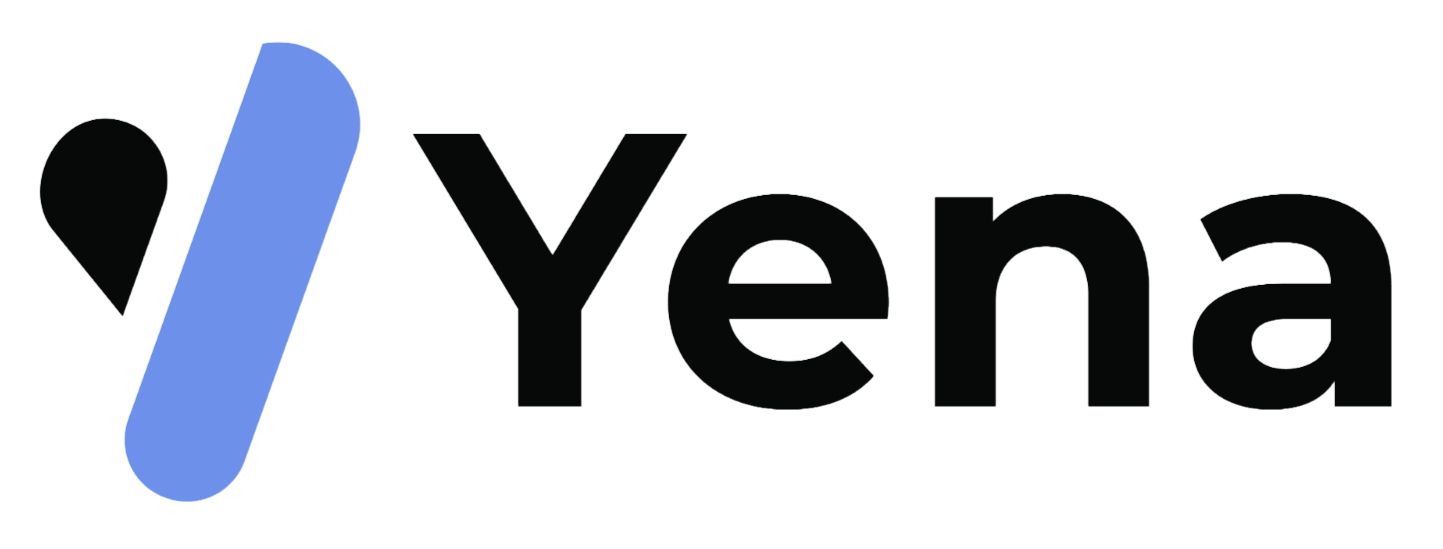The 12 Best CRM Software for Startups in 2025
- Janis Kolomenskis
- 3 days ago
- 19 min read
Your startup's journey is a high-stakes race to build relationships, close deals, and scale-up, fast. Juggling contacts in spreadsheets, managing deals in email threads, and losing track of crucial conversations isn't just inefficient; it's a direct threat to your growth. This is where the right Customer Relationship Management (CRM) system transforms from a "nice-to-have" into your company's central nervous system. A powerful CRM doesn't just store data; it operationalizes your entire go-to-market strategy, from fundraising and sales to recruiting top talent and forging strategic partnerships.
Finding the best CRM software for startups is a make-or-break decision, yet the market is saturated with options that feel either too simplistic or overwhelmingly complex and expensive. You need a tool that's affordable, easy to implement, and built to scale with you, not hold you back. Forget sifting through endless marketing pages and biased reviews. We've done the heavy lifting to bring you a definitive, no-nonsense guide to the top contenders.
This comprehensive listicle cuts through the noise. We'll dive deep into the platforms that truly understand the startup hustle, from free-forever plans perfect for early-stage founders to powerful systems designed for aggressive growth. You'll get:
Honest pros and cons for each platform.
Real-world use cases tailored for founders, sales teams, and recruiters.
Direct links and screenshots to see the software in action.
Our goal is simple: to equip you with the insights needed to choose a CRM that will become your most valuable growth engine. Let's find the perfect fit for your team.
1. Yena
Yena carves out a unique and powerful niche, positioning itself as the best CRM software for startups whose growth hinges on network-driven opportunities. Instead of a traditional CRM focused on managing static contact lists, Yena operates as an AI-powered relationship intelligence platform. It dynamically maps your team's disparate professional networks from sources like LinkedIn, Gmail, and Outlook into a unified, private graph of connections.
This approach fundamentally changes how startups approach outreach. Yena’s core strength is its ability to surface warm introduction paths to key targets in under a minute, a game-changer for fundraising, high-stakes sales, and executive recruiting.

Why Yena is a Top Choice for Startups
The platform’s Network Intelligence AI allows for sophisticated, natural-language searches. A founder can query “AI founders in Berlin” or a recruiter can search for a “VP of Engineering at a Series B SaaS company” and receive a ranked list of the strongest introduction paths. Each path is enriched with context, showing relationship strength signals like shared history, past employers, and mutual interactions. This intelligence transforms cold outreach into a strategic, high-confidence engagement. Yena's framework explains how integrating this relationship data with traditional CRMs can unlock significant business growth.
Standout Features & Use Cases
AI-Powered Pathfinding: Automatically scans over 50,000 extended connections per user to identify the most viable warm introduction routes.
Semantic Search: Go beyond simple keyword matching with natural-language queries that understand intent and context, delivering more relevant results.
Collaborative Workflows: In-app intro requests, status tracking, and gamified features encourage team-wide participation, turning the entire organization's network into a strategic asset.
Measurable Performance: Yena reports dramatic improvements over cold outreach, with users achieving up to a 67% response rate on warm intros and shortening time-to-close by 40%.
Practical Considerations
Pros: - Transforms fragmented contacts into an actionable, searchable relationship graph. - Delivers proven, high-impact results for sales, recruiting, and fundraising. - Smart context and semantic search ensure higher-quality, personalized outreach. - Seamless integrations and a no-credit-card-required 14-day free trial lower the barrier to entry.
Cons: - Its value is directly proportional to the size and quality of your team's existing network. - Pricing is not publicly listed, requiring direct contact for enterprise plans.
Website: https://yena.ai
2. HubSpot Sales Hub and Free CRM
HubSpot is an absolute powerhouse in the CRM world, and for startups, it’s a game-changer. It’s not just a CRM; it’s an entire growth platform. The brilliance of HubSpot lies in its freemium model, offering a robust, genuinely useful set of tools at no cost, making it arguably one of the best CRM software for startups just getting off the ground. You can manage contacts, track deals in a visual pipeline, log sales activity, and even use email tracking and meeting scheduling tools without spending a dime.
.
Why HubSpot Excels for Startups
The true magic happens when you're ready to scale. HubSpot provides a clear, integrated upgrade path from its free tools to the powerful Sales Hub, Marketing Hub, and Service Hub. This unified ecosystem means your sales, marketing, and customer service teams are all working from the same playbook, with the same data. The user interface is famously intuitive, which drastically cuts down on training time-a huge plus for fast-moving teams.
Pricing & Key Features
Feature | Free CRM | Sales Hub Starter | Sales Hub Professional |
|---|---|---|---|
Price | $0 | Starts at $15/seat/mo | Starts at $90/seat/mo |
Core CRM | ✅ | ✅ | ✅ |
Deal Pipelines | 1 Pipeline | 2 Pipelines | 15 Pipelines |
Email Tracking | ✅ | ✅ | ✅ |
Automation | ❌ | ✅ (Simple) | ✅ (Advanced) |
Forecasting | ❌ | ❌ | ✅ |
Pros & Cons
Pros: * Exceptional Free Tier: The free tools are more than enough for early-stage startups to establish solid sales processes. * All-in-One Platform: The ability to seamlessly integrate sales, marketing, and service operations is a massive competitive advantage. * Incredible Resources: HubSpot Academy offers free, high-quality courses that can turn anyone on your team into a growth expert.
Cons: * Rapidly Increasing Costs: While it starts free, moving up to Professional or Enterprise tiers can become expensive quickly, especially as your team grows. * Gated Advanced Features: Key functionalities like advanced automation and sales forecasting are locked behind the pricier plans.
Visit HubSpot: https://www.hubspot.com
3. Salesforce Starter
Salesforce is the undisputed giant of the CRM industry, and for a long time, it felt out of reach for most early-stage companies. The Salesforce Starter suite changes that narrative completely. It bundles the core functionalities of sales, service, and marketing into a simplified, affordable package, providing startups with a direct entry point into the most powerful CRM ecosystem on the planet. This makes it an exceptional choice for founders who are planning for massive scale from day one.
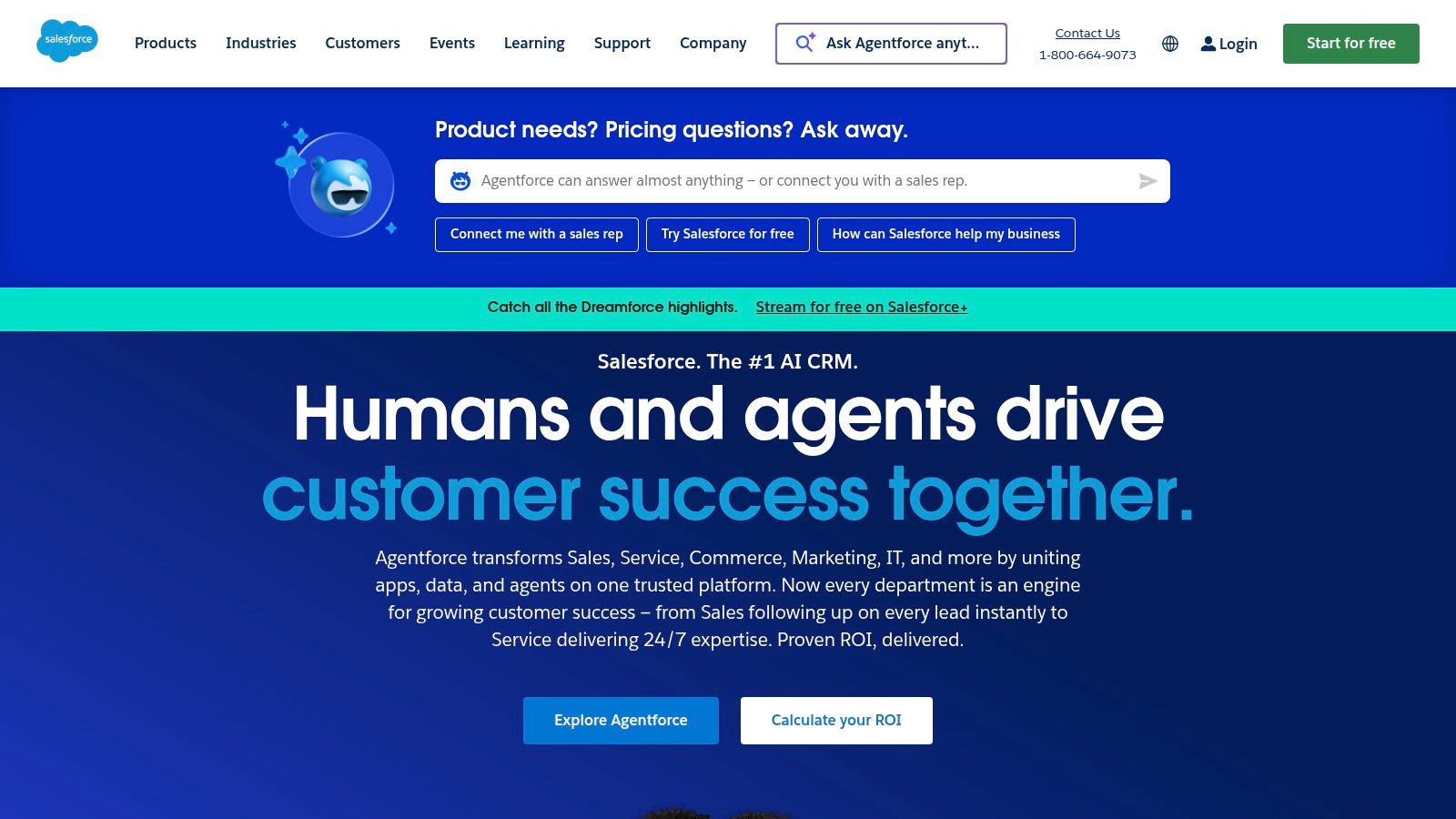
Why Salesforce Excels for Startups
The primary advantage of starting with Salesforce is its unparalleled scalability. You're not just buying a CRM; you're buying into an infrastructure that can grow with you from your first 10 customers to 10 million. The AppExchange, Salesforce's marketplace, offers thousands of integrations, meaning you can connect almost any tool your team uses. While the initial setup is more involved than some competitors, building your foundation on Salesforce ensures you won't need a painful data migration down the line. It's a platform built for long-term success.
Pricing & Key Features
Feature | Starter | Sales Cloud Professional | Sales Cloud Enterprise |
|---|---|---|---|
Price | Starts at $25/user/mo | Starts at $80/user/mo | Starts at $165/user/mo |
Unified Platform | ✅ (Sales, Service, Marketing) | ✅ | ✅ |
Lead & Opp. Mgmt. | ✅ | ✅ | ✅ |
Custom Dashboards | ✅ | ✅ | ✅ |
Forecasting | ❌ | ✅ | ✅ |
Workflow Automation | ❌ | ✅ | ✅ (Advanced) |
Pros & Cons
Pros: * Ultimate Scalability: The platform is designed to handle immense complexity and growth without breaking a sweat. * Massive Ecosystem: Access to the AppExchange gives you an unmatched library of third-party integrations. * Industry Standard: Building your team's skills on Salesforce is a valuable investment, as it is a widely recognized and sought-after skillset.
Cons: * Steeper Learning Curve: It's more complex than simpler CRMs and may require a dedicated admin or a tech-savvy team member to manage. * Higher Costs to Scale: Moving to higher tiers for features like forecasting and automation represents a significant price jump.
Visit Salesforce: https://www.salesforce.com
4. Zoho CRM
Zoho CRM is a phenomenal choice for startups that need a powerful, feature-rich platform without the enterprise-level price tag. Its biggest draw is the sheer breadth of functionality packed into its affordable plans, making it a standout contender for the best crm software for startups managing a tight budget. Zoho goes beyond just contact management, offering a comprehensive suite that covers sales, marketing, and support, all tightly integrated.
Why Zoho CRM Excels for Startups
The real value for a growing company is the Zoho ecosystem. Starting with Zoho CRM gives you a direct line into an entire suite of business applications, from accounting (Zoho Books) to project management (Zoho Projects). This integrated approach prevents the data silos and integration headaches that often plague scaling startups. Furthermore, its user interface is highly customizable, allowing teams to tailor layouts and modules to their specific sales processes, which is a huge advantage for startups defining their unique go-to-market strategies.
Pricing & Key Features
Feature | Free Edition | Standard | Professional |
|---|---|---|---|
Price | $0 (up to 3 users) | Starts at $14/user/mo | Starts at $23/user/mo |
Core CRM | ✅ | ✅ | ✅ |
Sales Forecasting | ❌ | ✅ | ✅ |
Workflow Automation | ✅ (Limited) | ✅ | ✅ (Advanced) |
AI Assistant (Zia) | ❌ | ❌ | ✅ |
Multiple Pipelines | ❌ | ✅ | ✅ |
Pros & Cons
Pros: * Incredible Value: The feature-to-price ratio is one of the best on the market, offering advanced tools at a startup-friendly cost. * All-in-One Ecosystem: Native integrations with dozens of other Zoho apps create a unified and powerful operational backbone. * Generous Free Plan: The free edition for up to three users is a fantastic starting point for very early-stage teams.
Cons: * Can Feel Overwhelming: The vast number of features and customization options can present a steeper learning curve compared to simpler CRMs. * Key Features Gated: The most impactful tools, like the Zia AI assistant, are reserved for the more expensive tiers.
Visit Zoho CRM: https://www.zoho.com/crm
5. Pipedrive
Pipedrive is the CRM built by salespeople, for salespeople, and it shows. It’s designed around the concept of a sales pipeline, making it incredibly intuitive for startups that live and breathe deal flow. The entire platform is engineered to help sellers visualize their process, focus on the right activities, and close deals faster. For any founder or small sales team that finds other CRMs overly complex, Pipedrive is a breath of fresh air and a strong contender for the best crm software for startups.

Why Pipedrive Excels for Startups
The genius of Pipedrive is its singular focus on sales activity management. Its visual, drag-and-drop interface makes managing deals feel like a simple, repeatable process, which is critical for building a scalable sales engine from scratch. This focus eliminates the feature bloat common in larger platforms, allowing your team to get set up and start selling in minutes, not weeks. The powerful mobile app and deep integration library mean your sales process is never siloed.
Pricing & Key Features
Feature | Essential | Advanced | Professional |
|---|---|---|---|
Price | Starts at $14/seat/mo | Starts at $29/seat/mo | Starts at $49/seat/mo |
Core CRM | ✅ | ✅ | ✅ |
Custom Pipelines | ✅ | ✅ | ✅ |
Email Sync & Tracking | ❌ | ✅ | ✅ |
Workflow Automation | ❌ | ✅ (30 rules) | ✅ (60 rules) |
Revenue Forecasting | ❌ | ❌ | ✅ |
Pros & Cons
Pros: * Extremely User-Friendly: Its visual pipeline and activity-based selling methodology are incredibly easy for new teams to adopt. * Excellent Mobile App: Empowers sales reps to manage their pipeline effectively from anywhere. * Strong Focus on Sales: Uncluttered interface keeps teams focused on what matters most: closing deals.
Cons: * Lighter on Marketing: Lacks the deep, built-in marketing automation features found in all-in-one platforms. * Analytics Can Be Limited: Advanced reporting and forecasting are reserved for higher-priced tiers.
Visit Pipedrive: https://www.pipedrive.com
6. Freshsales by Freshworks
Freshsales is a fantastic, sales-first CRM from the Freshworks ecosystem, designed with a laser focus on the needs of SMBs and startups. What makes it stand out is its emphasis on providing tangible, out-of-the-box communication tools. Instead of relying on a dozen integrations, Freshsales bakes in phone, email, and chat capabilities directly into its platform, creating a unified and efficient workspace for sales teams from day one.
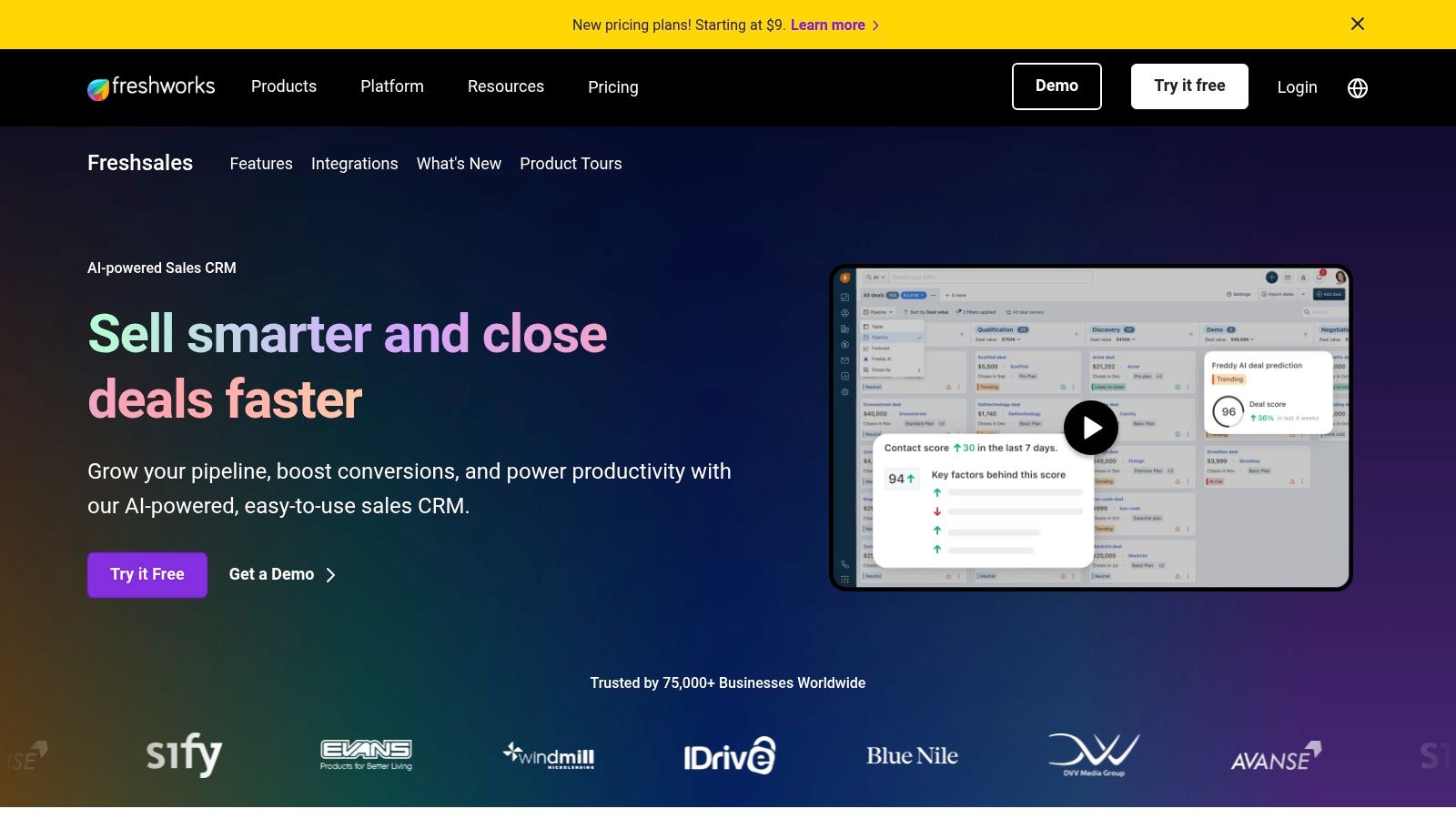
Why Freshsales Excels for Startups
Freshsales truly shines by delivering immediate value without a steep learning curve or complex setup. The built-in communication suite means your team can start making calls, sending emails, and engaging with leads through chat right away. Its AI-powered assistant, Freddy, helps prioritize leads with contact scoring and offers actionable deal insights, allowing small teams to focus their energy where it matters most. This makes it one of the best CRM software for startups that need to move fast and close deals efficiently.
Pricing & Key Features
Feature | Free | Growth | Pro |
|---|---|---|---|
Price | $0 (up to 3 users) | Starts at $15/user/mo | Starts at $39/user/mo |
Built-in Telephony | ✅ (Buy credits) | ✅ | ✅ |
Freddy AI Insights | ❌ | ✅ (Basic) | ✅ (Advanced) |
Visual Sales Pipelines | ✅ (1 Pipeline) | ✅ (Multiple) | ✅ (Multiple) |
Automation Workflows | ❌ | ✅ | ✅ |
Sales Sequences | ❌ | ❌ | ✅ |
Pros & Cons
Pros: * All-in-One Communication: Having phone, email, and chat natively integrated simplifies the sales stack and streamlines outreach. * Generous Free Plan: The free tier supports up to 3 users and includes core CRM functionalities, making it perfect for founding teams. * Excellent Value: The paid plans offer a robust set of features at a very competitive price point compared to rivals.
Cons: * Gated Advanced Features: Key sales tools like sequences and advanced AI-powered insights are only available in the higher-tier Pro plan. * Tiered Customization: Deeper customization and reporting capabilities are reserved for the more expensive plans, which might be a limitation as you scale.
Visit Freshsales: https://www.freshworks.com/crm
7. monday Sales CRM
For startups that live and breathe project management, monday Sales CRM is a breath of fresh air. It’s built on the incredibly flexible and visual monday.com Work OS, making it a natural choice for teams who want their CRM to be more than just a sales tool. It brilliantly merges sales pipeline management with broader operational workflows, allowing you to align sales activities with marketing projects, client onboarding, and more, all within a single, unified workspace. This makes it one of the best CRM software for startups prioritizing cross-departmental collaboration.
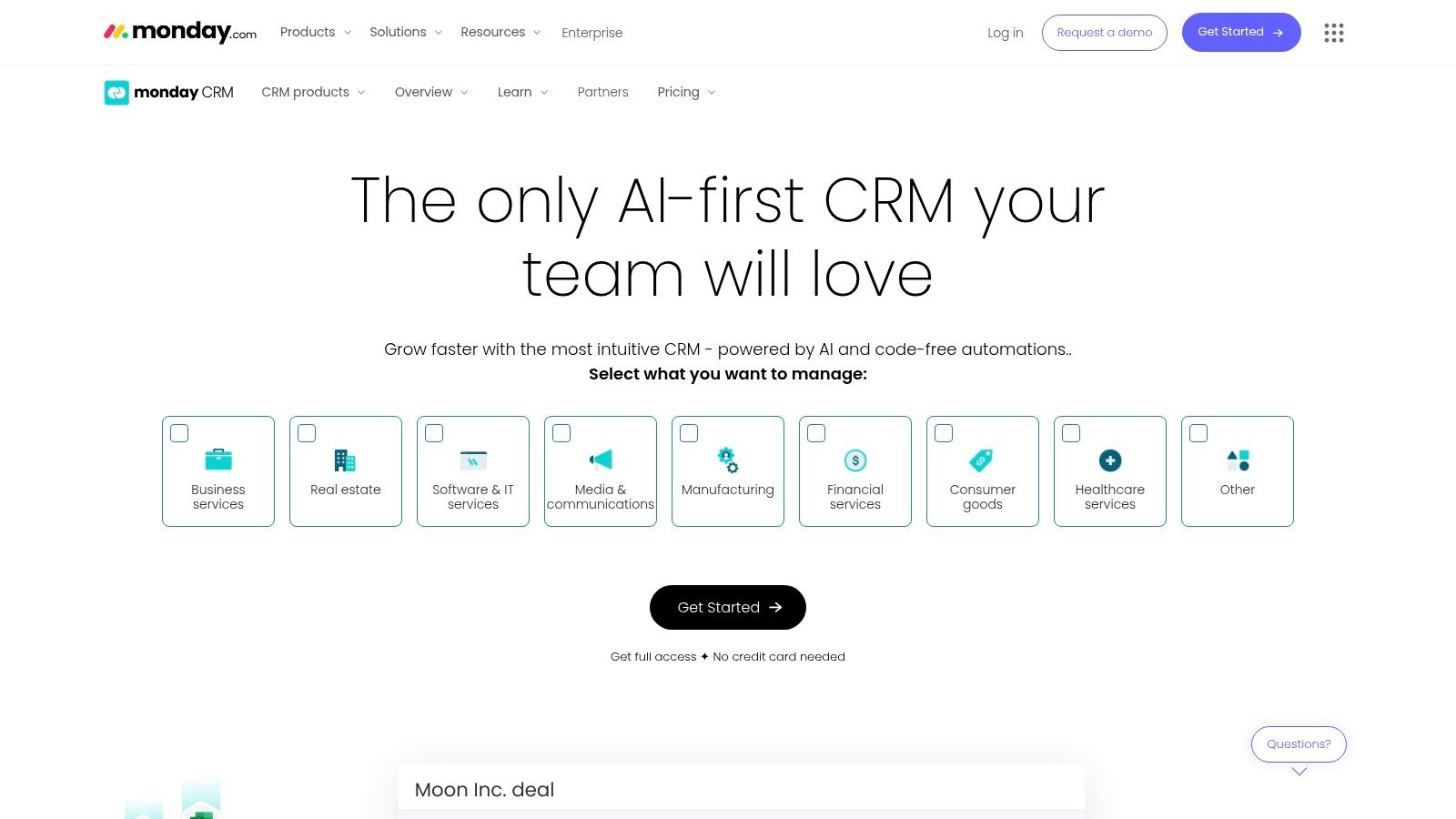
Why monday Sales CRM Excels for Startups
The standout feature is its no-code, drag-and-drop customization. Startups can build their ideal CRM workflow without writing a single line of code, adapting the platform on the fly as their sales process evolves. You can create visual dashboards to track key metrics, automate repetitive tasks like follow-up emails, and integrate with the tools you already use. This level of adaptability empowers teams to build a system that truly fits their unique GTM strategy, rather than forcing their process into a rigid, pre-defined structure.
Pricing & Key Features
Feature | Basic CRM | Standard CRM | Pro CRM |
|---|---|---|---|
Price (3-seat min) | Starts at $12/seat/mo | Starts at $17/seat/mo | Starts at $28/seat/mo |
Custom Pipelines | ✅ (Unlimited) | ✅ (Unlimited) | ✅ (Unlimited) |
2-Way Email Sync | ❌ | ✅ (Gmail & Outlook) | ✅ (Gmail & Outlook) |
Automations | ✅ (250 actions/mo) | ✅ (2,500 actions/mo) | ✅ (25,000 actions/mo) |
Quotes & Invoices | ❌ | ❌ | ✅ |
Sales Forecasting | ❌ | ❌ | ✅ |
Pros & Cons
Pros: * Highly Configurable: The visual, no-code interface makes it incredibly easy to customize every aspect of your sales process without needing developers. * Unifies Operations: Seamlessly connects sales data with project management, marketing campaigns, and other business functions on the same platform. * Visually Intuitive: The board-based view is easy for teams to adopt, providing a clear and engaging overview of deals and tasks.
Cons: * No Permanent Free Plan: Unlike some competitors, there isn't a dedicated free-forever CRM tier, which can be a barrier for bootstrapped startups. * Seat Minimums: Pricing requires a minimum of three seats, which can inflate the starting cost for very small or solo-founder teams.
Visit monday Sales CRM: https://monday.com/crm
8. Close
For startups built around a high-velocity, outbound sales motion, Close is an absolute dream. It’s designed from the ground up to empower sales reps to communicate more effectively and efficiently, integrating calling, SMS, and email directly into the CRM workflow. This all-in-one approach eliminates the need to jump between different apps, keeping your team focused on what they do best: closing deals. It's purpose-built for teams that live on the phone and in the inbox, making it a powerful contender for the best CRM software for startups with a relentless sales focus.
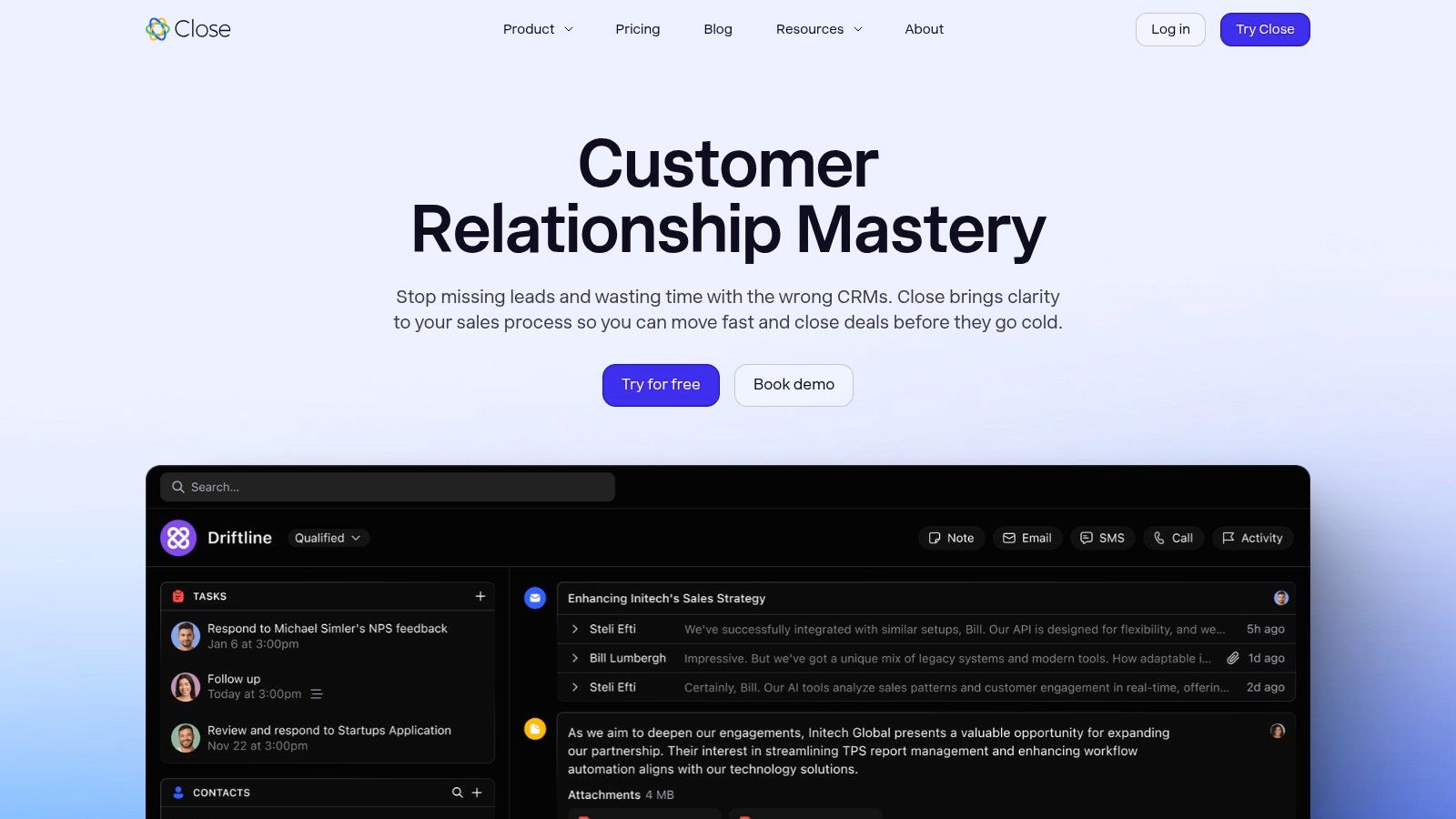
Why Close Excels for Startups
Close shines by putting all communication tools at your fingertips. The native Power Dialer and predictive dialer features in higher tiers are game-changers for teams making hundreds of calls a day, while the shared team inbox ensures no email or follow-up is ever missed. This singular focus on sales execution means less time on admin and more time engaging with prospects. Its straightforward interface and sales-centric features make it incredibly fast for a new team to adopt and see immediate results.
Pricing & Key Features
Feature | Startup | Professional | Business |
|---|---|---|---|
Price | Starts at $49/user/mo | Starts at $99/user/mo | Starts at $149/user/mo |
Core CRM & Pipelines | ✅ | ✅ | ✅ |
Built-in Calling & SMS | ✅ | ✅ | ✅ |
Email Automation | ✅ | ✅ | ✅ |
Power Dialer | ❌ | ✅ | ✅ |
Predictive Dialer | ❌ | ❌ | ✅ |
Pros & Cons
Pros: * All-in-One Communications: Having calling, SMS, and email built-in dramatically speeds up the outbound sales workflow. * Sales-Led Design: The entire platform is optimized for reps who are actively selling, not just managing data. * Easy to Use: The user interface is clean and intuitive, leading to rapid adoption for small, agile teams.
Cons: * Usage Costs: Calling and SMS usage can incur additional costs on top of the subscription fee. * Niche Focus: It's less of an all-purpose platform compared to others; its strength is purely in sales communication.
Visit Close: https://www.close.com
9. Copper
For startups living and breathing in Google Workspace, Copper is a breath of fresh air. It’s the CRM designed to disappear into your workflow by embedding itself directly into Gmail, Google Calendar, and other Google apps. This eliminates the dreaded context-switching that kills productivity, allowing your team to manage contacts, update deals, and track conversations right from their inbox. It’s a brilliant approach that makes CRM adoption practically frictionless for any team already centered on Google's ecosystem.

Why Copper Excels for Startups
Copper’s superpower is its deep, native integration with Google Workspace. It automatically scrapes contact information from your emails and calendar events, enriching profiles and building your database with zero manual effort. This makes it an exceptional choice for relationship-driven startups in consulting, services, or venture capital where network intelligence is key. The user experience is so intuitive and familiar to Gmail users that it requires minimal training, a major win for fast-growing teams who can't afford slowdowns.
Pricing & Key Features
Feature | Basic | Professional | Business |
|---|---|---|---|
Price | Starts at $29/seat/mo | Starts at $69/seat/mo | Starts at $129/seat/mo |
Google Workspace Sync | ✅ | ✅ | ✅ |
Contact Limit | 2,500 Contacts | 15,000 Contacts | Unlimited |
Pipelines | 1 Pipeline | 10 Pipelines | Unlimited |
Workflow Automation | ❌ | ✅ | ✅ (Advanced) |
Project Management | ❌ | ✅ | ✅ |
Pros & Cons
Pros: * Seamless Google Integration: Lives inside Gmail, making user adoption incredibly easy and reducing workflow friction. * Automated Data Entry: Automatically captures and organizes contacts, emails, and files, saving significant time. * Intuitive & Visual: The visual pipeline and clean interface are easy for anyone to pick up and use immediately.
Cons: * Google-Dependent: Its greatest strength is also a limitation; it's not ideal for teams that don't primarily use Google Workspace. * Restrictive Lower Tiers: The Basic plan has a tight contact limit and lacks key features like workflow automation, pushing growing teams to upgrade.
Visit Copper: https://www.copper.com
10. Streak CRM for Gmail
For the startup founder who lives and breathes in their Gmail inbox, Streak is nothing short of a revelation. Instead of a separate platform you have to constantly switch to, Streak embeds a powerful yet lightweight CRM directly into your Gmail interface. This zero-friction approach makes it one of the best CRM software for startups that prioritize speed and simplicity. You can track sales pipelines, manage hiring funnels, or oversee fundraising efforts right alongside your emails, eliminating the need for context switching and making CRM adoption effortless for the whole team.
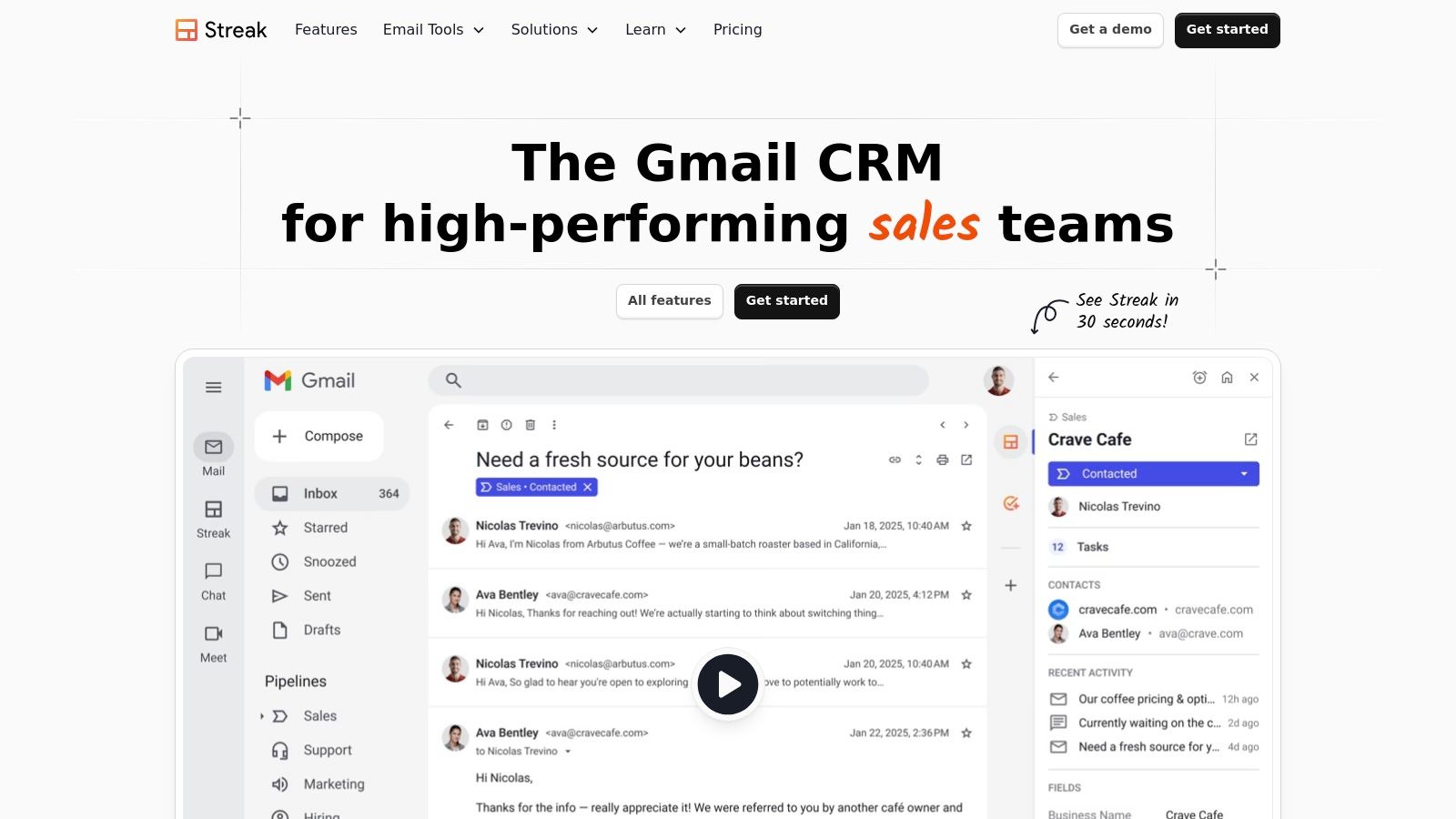
Why Streak Excels for Startups
Streak’s true genius is its seamless integration with the Google Workspace ecosystem. It feels less like a separate tool and more like a native Gmail feature. For very early-stage teams or solo founders, this means there’s virtually no learning curve. You can create visual pipelines, share them with your team, and automatically capture data from emails without ever leaving your inbox. The simplicity keeps your focus on what matters: building relationships and closing deals.
Pricing & Key Features
Feature | Free | Solo | Pro |
|---|---|---|---|
Price | $0 | Starts at $15/seat/mo | Starts at $49/seat/mo |
Core CRM | ✅ | ✅ | ✅ |
Mail Merge | 50/day | 800/day | 1500/day |
Shared Pipelines | ❌ | ❌ | ✅ |
Email Tracking | ✅ (Basic) | ✅ (Basic) | ✅ (Advanced) |
Integrations/API | ❌ | ❌ | ✅ |
Pros & Cons
Pros: * Zero-Friction Adoption: Lives entirely inside Gmail, making it incredibly easy for anyone familiar with the platform to get started immediately. * Excellent for Simplicity: Perfect for managing straightforward sales, fundraising, or hiring processes without unnecessary complexity. * Affordable Entry Point: The free and solo plans provide significant value for individuals and very small teams.
Cons: * Gmail Dependent: Its greatest strength is also its limitation; it's not a fit for teams that don't primarily use Gmail. * Less Robust: Lacks the advanced automation, reporting, and deep customization of standalone CRM platforms.
Visit Streak: https://www.streak.com
11. G2
While not a CRM itself, G2 is an indispensable resource for any startup navigating the crowded CRM market. Think of it as your ultimate research co-pilot. This massive software marketplace provides verified user reviews, detailed feature comparisons, and dynamic rankings that cut through marketing fluff. For founders looking for the best crm software for startups, G2 allows you to filter options by company size, user satisfaction, and specific features, giving you a powerful, data-backed shortlist in minutes.
Why G2 Excels for Startups
The real value for startups is the authentic, peer-driven insight. You can read detailed reviews from users at companies just like yours, uncovering real-world pros, cons, and implementation stories you won't find on a vendor's website. This helps you anticipate potential challenges and identify which platform truly aligns with your team's workflow and growth stage. G2’s comparison tools and Grid® Reports provide a clear visual map of the competitive landscape.
Pricing & Key Features
Feature | G2 Basic User | G2 Buyer Intent | G2 Marketing Solutions |
|---|---|---|---|
Price | $0 | Paid (Vendor Tool) | Paid (Vendor Tool) |
User Reviews | ✅ | ✅ | ✅ |
Software Comparison | ✅ | ✅ | ✅ |
Category Reports | ✅ | ✅ | ✅ |
Vendor Trials | ✅ (Direct links) | ❌ | ❌ |
Pros & Cons
Pros: * Authentic User Insights: Access thousands of verified reviews to understand how a CRM performs in the real world. * Powerful Filtering: Easily narrow down the vast CRM market to find solutions that fit your specific budget, size, and feature needs. * Broad Market Coverage: Discover emerging and niche CRMs that might not appear on typical "top 10" lists.
Cons: * Sponsored Placements: Be mindful that vendor sponsorships can influence visibility in search results and category pages. * Requires Further Vetting: G2 is a starting point; you must still conduct your own demos and trials to confirm a fit.
Visit G2: https://www.g2.com
12. Capterra
While not a CRM itself, Capterra is an indispensable research tool for any startup navigating the crowded software landscape. Think of it as your strategic starting point, a massive directory designed to help you discover and compare hundreds of CRM options side-by-side. For founders and team leads tasked with finding the perfect tool, this platform can save dozens of hours of manual research by centralizing product profiles, user reviews, and pricing information. It’s an essential first stop before you commit to any demos or trials.
Why Capterra Excels for Startups
Capterra's power for startups lies in its comprehensive buyer guides and shortlists specifically tailored for small businesses. These resources cut through the marketing noise and help you identify a manageable list of potential candidates based on your unique needs. Instead of starting with a blank slate, you can use their filters and comparison tools to quickly see which platforms offer the features you need at a price you can afford, making it a highly efficient way to find the best CRM software for startups.
Pricing & Key Features
Feature | Small Business CRM Directory | Product Profiles | Buyer Guides |
|---|---|---|---|
Price | $0 (Free to Use) | $0 (Free to Use) | $0 (Free to Use) |
CRM Listings | ✅ | ✅ | ✅ |
User Reviews | ✅ | ✅ | ✅ |
Feature Comparison | ✅ | ✅ (Alternatives) | ✅ |
Pricing Snippets | ✅ | ✅ | ❌ |
Direct Vendor Links | ✅ | ✅ | ✅ |
Pros & Cons
Pros: * Vast Selection: Easily scan and compare a huge number of CRM options in one place. * Helpful Education: The buyer guides and shortlists provide excellent context and help you frame your search effectively. * Time-Saving: Drastically reduces the time needed to build a shortlist of relevant CRM vendors.
Cons: * Pricing Can Be Outdated: Pricing information displayed on profiles may not always reflect the latest vendor changes. * Verification Needed: Always double-check features and pricing on the official vendor website before making a final decision.
Visit Capterra: https://www.capterra.com
Top 12 CRM for Startups — Features & Pricing
Product | ✨ Core / Unique | ★ UX & Performance | 💰 Value / Pricing | 👥 Target |
|---|---|---|---|---|
🏆 Yena | ✨ Semantic relationship search; private searchable graph; multi‑hop warm‑path mapping; in‑app intro workflows | ★★★★☆ 67% warm‑intro response; ~60s to surface paths; 40% faster closes | 💰 Free 14‑day trial; enterprise pricing (contact); $15K+ claimed annual savings | 👥 Recruiters, founders, VCs, BD, hiring managers, Chiefs of Staff |
HubSpot Sales Hub + Free CRM | ✨ Unified CRM + marketing/service; large app marketplace | ★★★★☆ Easy onboarding; broad ecosystem | 💰 Free CRM; seat‑based paid tiers; costs scale | 👥 SMBs, startups, growth teams |
Salesforce Starter | ✨ Scalable platform; deep integrations & upgrade paths | ★★★☆ Powerful reporting; steeper admin curve | 💰 Paid Starter; scales to Pro/Enterprise; contact sales | 👥 Scaling startups → enterprises |
Zoho CRM | ✨ Multichannel CRM; Zia AI insights; tight Zoho suite integration | ★★★☆ Broad features; some initial complexity | 💰 Budget‑friendly; free plan; paid tiers for AI | 👥 Cost‑conscious startups & SMBs |
Pipedrive | ✨ Pipeline‑first UX; drag‑and‑drop boards; fast adoption | ★★★★☆ Very easy setup; strong pipeline visibility | 💰 Mid‑range, per‑seat pricing | 👥 Small sales teams, lean startups |
Freshsales (Freshworks) | ✨ Built‑in phone/email/chat; Freddy AI scoring | ★★★☆ Good out‑of‑box channels; practical value | 💰 Free up to 3 users; affordable paid plans | 👥 SMBs needing built‑in comms |
monday Sales CRM | ✨ No‑code configurable boards integrated with ops | ★★★☆ Highly configurable; needs setup time | 💰 No permanent free CRM; seat minimums affect cost | 👥 Teams wanting CRM + workflow alignment |
Close | ✨ Native dialer, SMS, email; outbound‑first features | ★★★★☆ Fast for high‑velocity outbound teams | 💰 Mid‑range; call/SMS usage may add cost | 👥 Outbound sales teams, SDRs |
Copper | ✨ Gmail & Calendar‑native CRM; low context switching | ★★★☆ Familiar Gmail UX; quick setup | 💰 Google Workspace‑centric tiers | 👥 Google Workspace teams |
Streak CRM for Gmail | ✨ Full CRM inside Gmail; zero context switch | ★★★☆ Inbox‑native; minimal friction | 💰 Affordable; Gmail‑based pricing | 👥 Founders, micro teams using Gmail |
G2 | ✨ Verified reviews, category shortlists, filters | ★★★★☆ Broad market coverage; peer insights | 💰 Free to use; links to vendor trials | 👥 Buyers researching SaaS options |
Capterra | ✨ Buyer guides, product profiles, quick shortlists | ★★★★☆ Easy scanning of many options | 💰 Free directory; vendor links to trials | 👥 Buyers seeking quick CRM comparisons |
From Contact List to Growth Engine
You've made it! After exploring everything from free-forever powerhouses like HubSpot to sales-focused titans like Close and innovative ecosystem builders like Yena, you're now armed with the knowledge to make a pivotal decision for your startup's future. The journey from a scattered collection of spreadsheets and contact lists to a fully integrated, automated growth engine is one of the most transformative steps a new business can take. It’s the moment you stop just managing relationships and start strategically orchestrating your growth.
The central theme woven through our analysis of each tool is clear: the best crm software for startups is not a one-size-fits-all solution. It's the one that aligns perfectly with your current stage, your immediate goals, and your future ambitions. A bootstrapped, two-person team will find immense value in the no-cost entry points of Zoho CRM or HubSpot's Free CRM, while a venture-backed startup with an aggressive go-to-market strategy might need the robust automation and GTM-enablement of a platform like Yena or the sales-centric features of Pipedrive right out of the gate.
Your Final Checklist Before You Commit
Before you sign up for that free trial or book a demo, let’s condense the core decision-making framework into a final, actionable checklist. Run your top two or three contenders through this gauntlet to reveal the true winner for your unique needs.
Stage-Specific Needs: Are you in the pre-seed "friends and family" stage or Series A with a dedicated sales team? Your answer radically changes your priorities. Early-stage founders need a lightweight, intuitive system (like Streak or Copper) that won't distract from product development. Scaling teams need a CRM that can grow with them, offering advanced features and integrations (like Salesforce Starter or Freshsales).
The Integration Ecosystem: A CRM is only as powerful as the data it can access. Does your chosen platform play nicely with the tools you already live in? Think about your email (Gmail/Outlook), communication (Slack), and marketing automation software. Seamless integration prevents data silos and saves countless hours of manual work.
Ease of Adoption: How steep is the learning curve? A complex system that your team refuses to use is worse than no system at all. Prioritize user experience and intuitive design, especially for non-technical team members. Platforms like monday Sales CRM excel here, turning a potentially dreaded task into an engaging one.
The Scalability Path: The "free" plan is fantastic, but what happens when you need more? Investigate the pricing tiers and feature unlocks. Will the next step up be a manageable jump or a budget-breaking leap? A clear and predictable upgrade path is a hallmark of the best crm software for startups because it anticipates your success.
Implementation Is Where the Magic Happens
Remember, selecting the software is only half the battle. Successful implementation is what separates a glorified address book from a revenue-generating machine. Start small. Don't try to boil the ocean by implementing every feature on day one. Focus on one core process-like tracking your sales pipeline or managing investor outreach-and master it.
Appoint a "CRM Champion" within your team, someone who is genuinely excited about the tool and can help onboard others. Document your processes, create simple "how-to" guides, and most importantly, lead by example. When the founding team lives and breathes the CRM, the rest of the company will follow suit. This cultural adoption is the secret ingredient to unlocking the full potential of your investment, turning your chosen platform into the central nervous system of your startup's entire growth strategy.
Ready to move beyond a traditional CRM and build a true growth ecosystem? Yena is the Go-To-Market Enablement Platform designed for startups that leverage their collective network to accelerate fundraising, sales, and recruiting. Instead of just managing contacts, Yena helps you map relationships, secure warm introductions, and activate your entire network to hit your most critical milestones faster.
